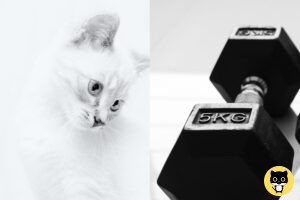How Cats Lose Weight?
Cats are one of the most beloved pets in the world. They bring us joy, comfort, and companionship. Unfortunately, cats are also prone to weight gain. This can be caused by several factors, such as lack of exercise or overeating. Fortunately, there are ways to help your cat lose weight safely and effectively. In this guide, we’ll cover the causes of cat obesity, the symptoms to look out for, and the various ways to help your cat lose weight.
Cats are known to be independent and carefree animals. They spend most of their time lounging around and snacking on treats. Unfortunately, this can lead to weight gain over time. An overweight cat is more prone to chronic illnesses such as diabetes, heart disease, and joint issues. To ensure your cat’s health and well-being, it is important to help them lose weight in a safe and effective manner. In this guide, we’ll discuss the causes of cat obesity, the symptoms to look out for, and the various ways to help your cat lose weight.
What Causes Cats to Gain Weight?
There are several factors that can contribute to your cat’s weight gain. The most common causes include overeating, lack of exercise, genetics, and age (resulting in more calories consumed than burned). Overeating is by far the most common cause of cat obesity. Cats can be quite persistent when it comes to snacking on treats, and if you’re not careful, they can easily consume more calories than they need. Lack of exercise is another major cause of weight gain. Cats that are not provided with the opportunity to exercise regularly are more likely to become overweight. Genetics can also play a role in cat obesity. Some cats are simply more prone to weight gain than others. Finally, age can be a factor. As cats get older, their metabolism slows down and they become less active, making it easier for them to gain weight.
Symptoms of an Overweight Cat
If your cat is overweight, there are several physical symptoms that you should look out for. These include an increase in size (obviously), difficulty breathing, and changes in behavior. An overweight cat will have a larger frame than a healthy cat, making it difficult for them to move around. They may also have difficulty breathing due to the extra weight. Finally, an overweight cat will often become more sedentary and less active than a healthy cat.
How to Help Your Cat Lose Weight
There are several ways to help your cat lose weight safely and effectively. The most important step is to establish a diet and exercise routine. This should include a balanced diet of healthy foods and regular exercise. Additionally, there are several supplements, behavioral changes, and other strategies that can be used to help your cat lose weight.
Diet Tips to Help Your Cat Lose Weight
The most important thing to remember when it comes to helping your cat lose weight is to establish a healthy diet. This should include a balanced mix of proteins, carbohydrates, and healthy fats. It is also important to ensure that your cat is getting the appropriate amount of calories for their size and activity level. You can find out how many calories your cat needs by consulting your veterinarian. Additionally, you should avoid feeding your cat processed foods and treats as these are often packed with unhealthy fats and sugars.
Exercise Tips to Help Your Cat Lose Weight
Exercise is an essential part of helping your cat lose weight. Cats should be provided with ample opportunities to engage in physical activity. This can include playing fetch, chasing a laser pointer, or even just taking a walk. Additionally, you can provide your cat with interactive toys that encourage them to move around and stay active. To help your cat stay motivated and engaged, it is important to mix up their exercise routine on a regular basis.
Supplements to Help Your Cat Lose Weight
There are several supplements that can help your cat lose weight. These include omega-3 fatty acids, fiber, and probiotics. Omega-3 fatty acids are known to help reduce inflammation and promote healthy weight loss. Fiber helps to keep your cat full for longer, which can help them stay away from unhealthy snacks. Probiotics also help to reduce inflammation and promote healthy digestion.
Behavioral Changes to Help Your Cat Lose Weight
In addition to diet and exercise, there are several behavioral changes that can help your cat lose weight – while they are related to food and exercise. For example, it is important to keep track of your cat’s food intake and ensure that they are not overeating. Additionally, providing your cat with plenty of mental stimulation can help to reduce their stress levels and keep them active. Finally, it is important to avoid giving your cat too many treats as these can easily lead to weight gain.
When to Visit the Vet
If your cat is struggling to lose weight, you should visit your veterinarian. Your vet can provide you with further advice and guidance to help your cat achieve a healthy weight. Additionally, they can evaluate your cat to make sure that there are no underlying health issues that may be contributing to their weight gain.
Conclusion
Helping your cat lose weight can be a daunting task. However, with the right diet, exercise, and behavioral changes, you can help your cat achieve a healthy weight. Additionally, remember to consult your veterinarian if you have any concerns about your cat’s weight or health. With the tips in this guide, you start the path to helping your cat lose weight in a safe and effective manner.
Do you have any thoughts, ideas or experiences with overweigh cats and how to help them? Please register and leave a reply below and post in the Forums.


